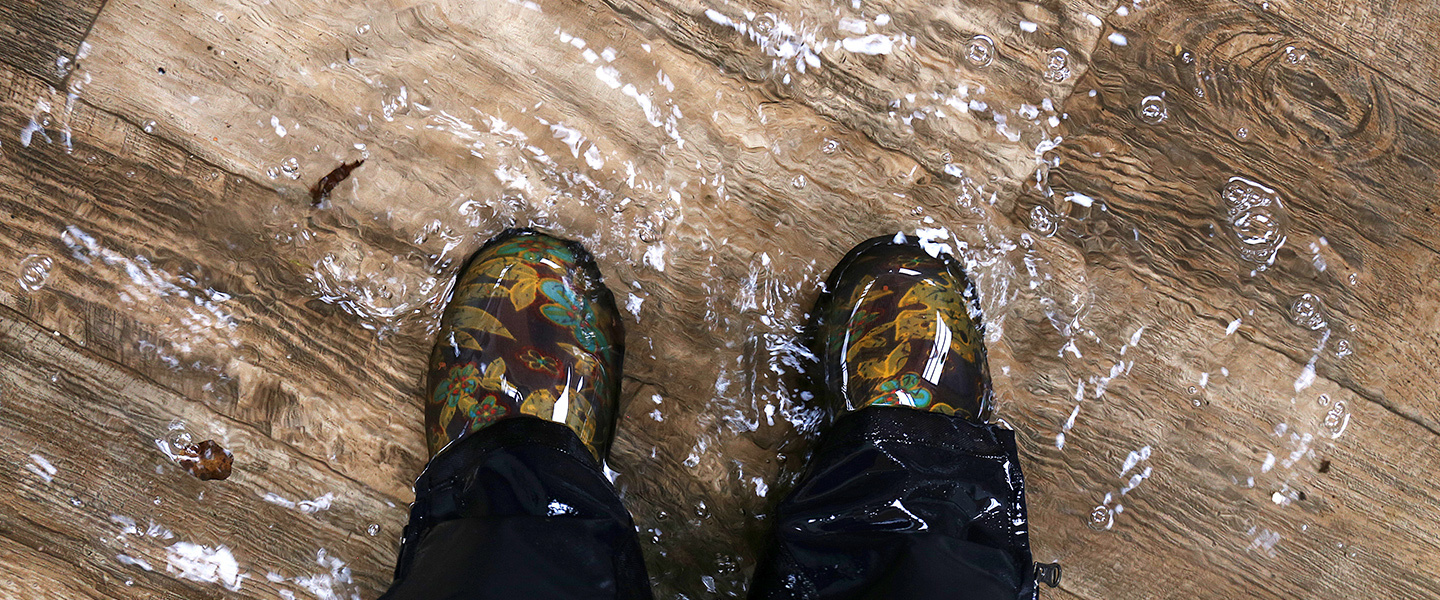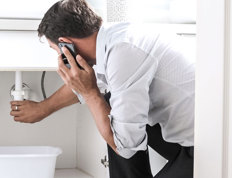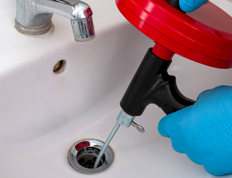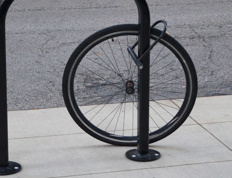Some common basement problems like surface water infiltration, French drain leaks or sewer overflow are not covered by basic home insurance policies. If necessary, contact your insurer to add extra coverage to your policy.
Thrifty tips to avoid costly water damage


A broken pipe or leaking dishwasher can become very expensive. The average cost of water damage related to sanitary fixtures or appliances is $13,000. Whether you own or rent, here are a few simple and thrifty precautions that could save you from a big claim.
Know how to turn off the water
If an appliance fails, reacting quickly and shutting off the water supply will limit the damage. The most effective method is to shut off the main water inlet valve. In a house, it’s usually located in the basement on the wall facing the street. In multi-unit buildings, each unit must have a shut-off valve at the point of entry. Make sure access to it is clear and you can get to it easily.
Be present when you run your dishwasher or washing machine
You can stop it and dry surfaces quickly if the unit breaks or leaks while you’re there. But if you start a cycle before leaving for work, the weekend or for a week-long vacation, damages to the building could be major. If the materials are not dried quickly, the damp environment could be conducive to mould, which can cause health risks for occupants.
Replace rubber hoses
Washing machines and dishwashers often come with rubber supply and drain hoses. Repeated water pressure and temperature changes can damage them over time. Replace them with stronger, more durable braided steel hoses at the slightest sign of wear and tear.
Use strainers
Sinks, bathtubs, showers: it’s easier to prevent them from clogging than it is to unclog them. A metal strainer fitted to each drain acts like a sieve, letting water flow out but trapping hair and food scraps.
Maintain and unclog sinks
If water seems to be draining slowly, first try pouring in half a cup of baking soda followed by a mixture of one cup of boiling water and one cup of white vinegar. The resulting chemical reaction should be enough to dislodge small residue. Avoid using chemical cleaners as some can damage the porcelain and the plumbing.
If that doesn’t do the trick, let hot water run and accumulate until you can completely submerge a plunger. Vigorously pump the plunger to clear the clog.
Replace worn seals
Sinks, bath faucets and shower heads use seals (rubber washers or tape) to prevent water from seeping through where certain components are joined. Pay attention to visible water leaks and periodically check the condition of these seals. If they seem dry or broken, replace them before damage occurs.
What is covered?
Basement: protect yourself accordingly
A basement is the perfect place to store things likes bikes, board games, tools and collectibles. But since it’s underground, it’s also more vulnerable to flooding, water infiltration and sewer backups. Store your valuables on higher shelves in waterproof bins or better yet on the upper floors. Where possible, use water-resistant materials for your flooring (e.g., ceramic, cement).
Keep the heat on, especially during winter
In cold weather, water in the pipes can freeze, expand, then cause damage. Always make sure to insulate these pipes and to adequately heat everywhere pipes run, including the garage and crawl spaces. Even when you’re away for long periods, temperatures should be maintained at a minimum of 15 °C to prevent moisture or freezing.
home insurance
prevention
tips
water damage
advice



















